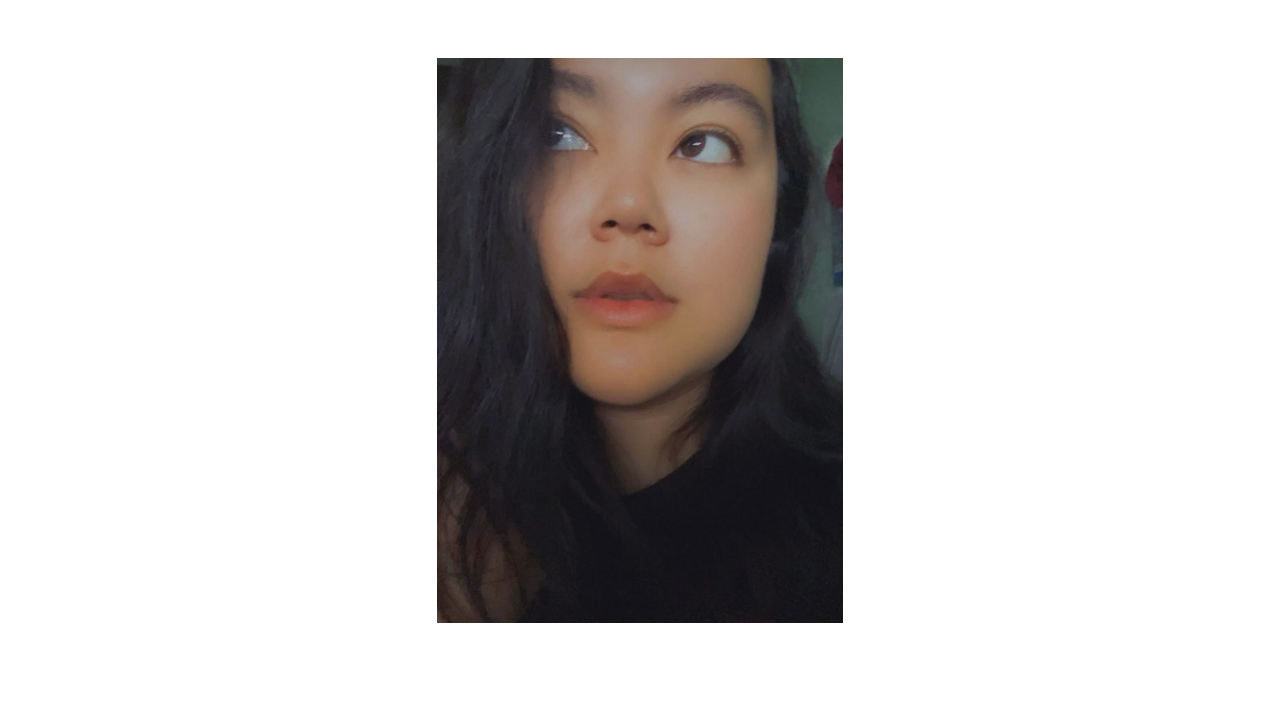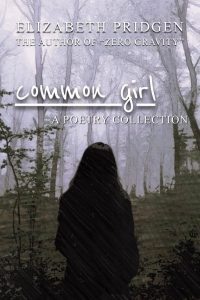Jukebox Time recently got a chance to interview Elizabeth Pridgen in regard to her new poetry book ‘Common Girl’. We got insights into her poems, her source of inspiration and much more!
1. Welcome to Jukebox Time. Congratulations on the release of your new poetry book! In Common Girl, the ordinary is made luminous. Was there a specific moment or image in your everyday life that first demanded to be transformed into poetry?
For this poetry collection, I was inspired by the image of the everyday woman in the world. We’re often viewed in the everyday world as only being soft, nurturing, naïve… And oftentimes, we’re viewed as being incapable of possessing somberness or grit. But that is far from true because of some of the events we live through in our lives and the traumas we endure. And with that knowledge and that image alone, it demanded to be transformed into poetry. It’s important for that raw, honest side to be shown rather than hidden or be seen at a different angle, which is why I wrote this poetry collection.
2. Many of your poems walk the line between quiet vulnerability and raw emotional power. How do you decide when to whisper and when to scream on the page?
It all comes from not just my instinct, but also deep thought and reflection whenever I’m writing something. I thought about these poems much like all times in life everyone goes through. You will have times when you have to have that quiet vulnerability, and there are other times when you do have to be vocal about your vulnerability. And in “Common Girl”, it showcases those times. I don’t want to give too much away… There’s times when she has to be vulnerable, but must also stay strong not so much for herself, but rather the people around her. So, the subject matter of the poem I think is also a major part of deciding whether or not to scream or whisper on the page.
3. You write about grief and frustration without glamorizing them. Were there any emotions you found too difficult—or too tempting—to write honestly about?
One emotion I found very difficult to write about was frustration. It’s an intense but complex emotion. It’s something any observer can witness, but they don’t understand why that person is angry. So, that was one I was cautious about writing. I wanted those emotions to speak for themselves without condoning or excusing it and let the emotions play out on their own. And frustration appears quite a bit throughout the collection in different poems which highlight different situations. Upon reflecting upon it, it is scary to think about how versatile it is in our day-to-day situations.
4. Do you write to be witnessed, or to process something personal in solitude?
I write more so to process personal things in solitude. Writing for me is something that fulfills me at my best and my worst times in life. I’ll write whenever I’m happy, and I’ll write whenever I’m upset about something. And I share my writing with hopes to share a unique voice and for others to hopefully relate it and to hopefully process something personal they might be going through.
5. If Common Girl were a playlist instead of a book, what songs would be on it— and which poem would you turn into a track first?
If it were a playlist, I could see songs like Billie Eilish’s song “TV” being on it. The first poem I would turn into a track would be “Grow Up”, which is the first poem in the collection. I would pick that one not only because it’s the first poem in my collection, but because it sets the tone of “Common Girl”. It begins in the cloudy innocence of childhood, and trickles into the sharp, harsh pains of adulthood. Not only that, but it was one of the first poems to the collection my family and friends read, and they thoroughly enjoyed that one.
6. You give voice to a girl others might overlook. Were there writers, artists, or characters you turned to for inspiration?
There were no specific writers, artists or characters I turned to for inspiration – but there’s definitely countless of them to turn to for inspiration. Instead, I turned to other people in my personal life for inspiration. That was my primary goal for this poetry collection, since the voices we don’t hear from the most are the ones that oftentimes deserve the most attention. For example, I turned to inspiration to a close friend of mine who lost her partner to a car accident and dealt with sleep paralysis episodes for months afterward. Stories and voices like that do not get shared enough in my opinion, and I think it’s important to shine a light on those and bring awareness to those types of vulnerable, raw stories.
7. Do you see this collection as pushing back against any cultural myths about girlhood, resilience, or softness?
Yes, I truly do. For years, we’ve seen the cultural myths of girlhood being simple, soft and sweet. And there are some moments in it where it can be those things, but that’s not the entirety of it. In all honesty, the good times of it are too short and it’s mostly overridden by times in which we are challenged mentally and emotionally. And whenever girls are challenged with it and we speak up about it, oftentimes girls are told they complain too much and have to put on a brave face… That is, until the weight of all those hardships becomes too much to bear. I definitely wanted to show that aspect of girlhood just to combat those cultural myths about girlhood and show rather the resilience of it.
8. How do you decide where a poem begins and where it refuses to end?
I rely mostly on my instinct. I write whatever comes to my mind while it’s still fresh. And if there’s nothing else that comes to my mind, I stop. Then, I’ll read what I wrote and reflect upon it. If I feel like it’s not enough, I try to add a little more without giving too much away. If there’s too much, I’ll cut some back. I’ve been writing for a little over 10 years, and even now, it’s difficult to find that line of where it can be too much or too little. But, it takes some practice and knowing what you want for your poem.
9. If a young girl who thinks of herself as “ordinary” reads Common Girl, what do you hope she feels in her bones when she finishes it?
I hope after reading this, she feels unique and special in her own right. Yes, there will be people who will view others as average, everyday people. But it’s important to not worry about what people think and focus on yourself, especially as a young girl maturing into a young woman. Not to mention, people can be very critical and cruel, especially in our climate now – and it’s even worse with social media. When I was younger, used to worry so much about what people thought of me, now I don’t care anymore because even after all my hardships, I know I’m special in my own different way. Above all else, I hope it not only strengthens every young girl’s confidence, but assures them that it’s ok to not have everything picture-perfect because nothing is in life, and that they are not alone in their struggles.
10. What’s one line or stanza in Common Girl that still haunts you—not because of what it says, but because of what you left out?
Some lines that haunt me is from my poem “Vent”. It’s the lines: “I’m just a person forced to be somber like a man, but quietly loving just like a woman, it’s the only life I’ve ever known.” These lines stand out to me the most, because there’s a lot I left out. I chose to only leave it at that to make it read in a short and simple manner. In reality, the subject matter is not that short nor sweet. Nevertheless, I wanted readers to simply linger upon it. I don’t want to give it all away, but all I say is that it is one of the things that haunts me because there’s so much more to elaborate upon it, but I chose to leave it there.
About the author: Elizabeth Pridgen is an author from Castalia, North Carolina. She graduated from NC State University with a bachelor’s degree in creative writing. At just 18-years-old, Pridgen published her first book, “The Life of David Earl Penning” and “NEVERAFTER”. At 21-years-old, she would publish her Amazon-best-seller, “Zero Gravity”. She also is the author of another Amazon best-seller, “Records You Don’t Care About: A Poetry Collection”.
Common Girl: A Poetry Collection is now available on Amazon!


